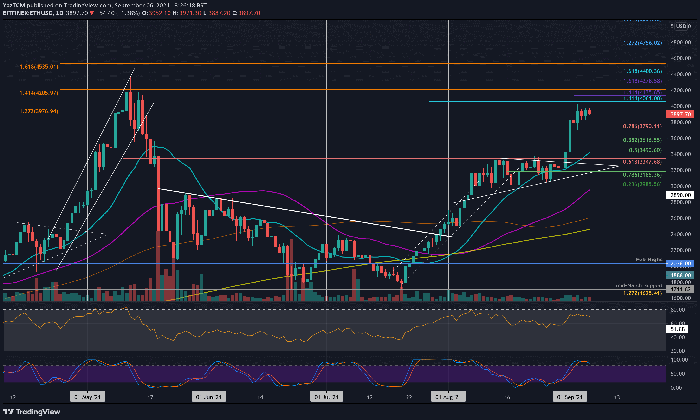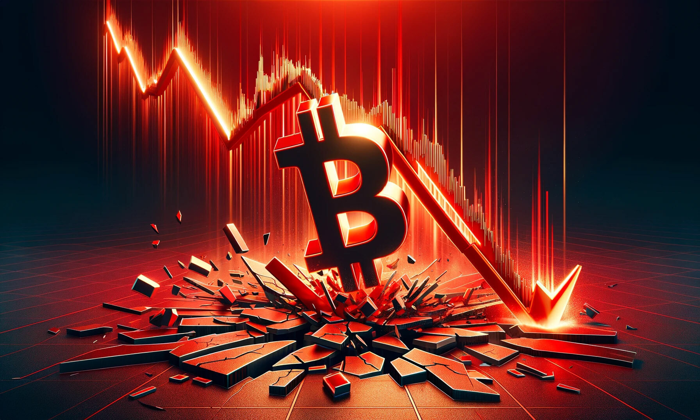The impact of Russia’s crypto mining activities has become increasingly evident, particularly in the context of unauthorized mining operations that have led to significant power grid losses. In 2024, the Rosseti Group reported staggering financial damages exceeding 1.3 billion rubles, primarily due to illegal cryptocurrency mining activities, which are often termed as “black mining operations.” The North Caucasus region alone accounted for over 600 million rubles in losses, highlighting the severe strain on the energy supply caused by these unauthorized operations. As electricity theft continues to disrupt the grid, it raises concerns about the broader implications of cryptocurrency mining effects on the stability of Russia’s power infrastructure. Consequently, the ongoing challenges also illuminate the need for effective regulation to mitigate the risks associated with rampant unauthorized mining in the country.
The phenomenon of cryptocurrency extraction, particularly in the form of unauthorized operations, poses a considerable challenge to Russia’s energy landscape. These illicit mining activities have resulted in substantial financial repercussions for the national power grid, with the Rosseti Group reporting unprecedented losses due to unauthorized energy consumption. The strain placed on electrical networks has prompted discussions about the sustainability of such practices and the potential for developing a regulatory framework to safeguard energy resources. As the demand for digital currencies continues to rise, understanding the implications of these mining ventures on the country’s power supply becomes increasingly critical. Addressing the balance between harnessing excess energy for economic gain while protecting the integrity of the power infrastructure is essential for Russia’s future.
The Economic Toll of Unauthorized Crypto Mining in Russia
Unauthorized crypto mining in Russia has led to significant economic losses, with Rosseti Group reporting damages exceeding 1.3 billion rubles in 2024 alone. These losses stem primarily from illegal operations that tap into the power grid without authorization, leading to a strain on resources and infrastructure. The North Caucasus region has been particularly hard hit, with losses amounting to over 600 million rubles. This situation not only reflects the growing prevalence of unauthorized mining but also raises serious concerns about the sustainability of the power grid in the face of rising energy demands.
The financial implications of these black mining operations extend beyond immediate losses. Rosseti has also indicated that the unauthorized use of energy contributes to inefficiencies within the power grid, causing voltage drops that can damage electrical appliances and disrupt service for legitimate consumers. As the demand for cryptocurrency mining continues to surge, the Russian power grid faces the challenge of balancing legitimate energy use with the illicit consumption associated with unauthorized mining activities.
Russia Crypto Mining Impact on Energy Resources
The impact of crypto mining on Russia’s energy resources is multifaceted, particularly as unauthorized mining operations have emerged as a significant drain on the power grid. Reports indicate that regions like Novosibirsk have seen individual cases where operators are running thousands of mining devices, leading to staggering losses. The resulting congestion in the power grid not only affects the stability of energy supply but also poses risks to the infrastructure designed to support legitimate consumers. This situation highlights the urgent need for regulatory measures to curb illegal operations and protect the integrity of the energy system.
In response to the growing crisis, authorities have launched over 130 investigations into unauthorized mining activities, with numerous cases now leading to criminal charges. As the government recognizes the detrimental effects of black mining operations on the economy and energy resources, there is increasing pressure to implement stricter regulations and monitoring. This could involve enhanced oversight of energy consumption patterns and the establishment of specific tariffs for mining operations, ensuring that energy is utilized responsibly and profitably.
Mitigating Power Grid Losses Through Regulation
To address the significant power grid losses attributed to unauthorized crypto mining, regulatory measures are being considered to manage energy consumption more effectively. The Russian government has acknowledged the necessity of safeguarding the power grid from the adverse effects of illegal mining operations. By regulating energy usage and imposing penalties on unauthorized miners, authorities aim to reduce the strain on the grid while ensuring that legitimate users receive reliable power supply. This regulatory framework could play a crucial role in curbing unauthorized mining activities and protecting national energy resources.
Furthermore, implementing a specialized tariff system for crypto mining operations could create a pathway for legal mining while safeguarding the power grid’s integrity. Such a system would not only provide a sustainable revenue stream for energy providers like Rosseti but could also incentivize responsible mining practices. By aligning the interests of miners with grid stability, Russia could capitalize on its vast energy resources while minimizing the economic toll associated with unauthorized mining.
Rosseti Group’s Vision for the Future of Crypto Mining
Rosseti Group has begun to explore the potential of legal cryptocurrency mining as a means to optimize its underutilized power capacity. This strategic shift aims to turn excess energy into a profitable venture while contributing to regional economic growth through increased tax revenue. With its extensive grid network, Rosseti is in a unique position to coordinate the establishment of mining infrastructure in areas where power supply is currently underutilized. By doing so, the company not only addresses the challenges posed by unauthorized mining but also positions itself as a pivotal player in the emerging crypto-mining industry.
The company’s initiative is bolstered by advanced energy infrastructure that incorporates modern switching equipment and load management systems, designed to ensure grid reliability. As discussions continue regarding the development of mining centers, Rosseti’s leadership is actively seeking government approval to oversee this transition. If successful, this could pave the way for a structured and regulated mining sector in Russia, allowing the country to harness its energy resources effectively while mitigating the adverse impacts of unauthorized operations.
The Role of Authorities in Combating Illegal Mining
Authorities play a crucial role in combating illegal cryptocurrency mining in Russia, particularly as the scale of unauthorized operations continues to grow. The government has initiated various measures to investigate and penalize those engaged in black mining activities, highlighting the need for a coordinated response to protect the energy grid. By intercepting numerous unauthorized cases and pursuing criminal charges, the state is sending a strong message about the consequences of energy theft. This proactive approach aims to deter potential offenders and restore integrity to the power supply system.
In addition to legal ramifications, authorities are also focusing on raising awareness about the dangers of unauthorized mining. The impact of black mining operations extends beyond financial losses; it also jeopardizes the reliability of the power grid and affects the quality of service for legitimate consumers. Continuous public education campaigns can help inform citizens about the importance of adhering to regulations and the potential risks associated with illegal mining. By fostering a culture of compliance, Russia can work towards a more sustainable and reliable energy future.
Future Prospects for Legalized Crypto Mining in Russia
As the landscape of cryptocurrency mining evolves, the prospects for legalized operations in Russia appear promising. With Rosseti Group’s initiative to explore legal mining as a means to optimize underutilized power capacity, the country has the potential to establish a structured framework for cryptocurrency operations. This could lead to significant economic benefits, including job creation, increased tax revenue, and a more stable energy market. By embracing cryptocurrency mining within a regulated environment, Russia could harness its vast energy resources while ensuring grid stability.
Moreover, the integration of advanced technologies and infrastructure enhancements could further bolster the effectiveness of legalized mining operations. As Rosseti implements modern load management systems and energy-efficient practices, the future of crypto mining in Russia could become a model for balancing economic development with energy conservation. The collaboration between energy providers, regulators, and the mining industry will be essential in shaping a sustainable and prosperous future for cryptocurrency mining in the country.
Challenges Faced by the Russian Power Grid
The Russian power grid faces numerous challenges, primarily driven by the surge in unauthorized cryptocurrency mining. As illegal operations proliferate, they exacerbate existing issues related to energy efficiency and infrastructure reliability. The significant losses reported by Rosseti Group serve as a stark reminder of the strain placed on the power system due to black mining operations. Consequently, addressing these challenges requires a comprehensive strategy that includes both regulatory measures and technological advancements to enhance the grid’s capacity and resilience.
Additionally, the complex nature of energy distribution in Russia complicates the situation. Regions affected by unauthorized mining often experience voltage drops and service disruptions, impacting not only miners but also regular consumers. To tackle these challenges effectively, a multi-faceted approach is needed, combining law enforcement efforts against illegal mining with investments in grid modernization. By prioritizing the stability and reliability of the power grid, Russia can mitigate the adverse effects of unauthorized mining while promoting responsible energy consumption.
The Economic Benefits of Regulating Crypto Mining
Regulating cryptocurrency mining in Russia could yield substantial economic benefits, transforming a largely underground industry into a legitimate sector contributing to the national economy. By establishing a framework for legal mining operations, the government can harness the potential of crypto mining to generate tax revenue and create jobs. This transition from unauthorized to authorized mining not only helps in stabilizing the power grid but also allows for better management of energy resources, leading to a more sustainable economic environment.
Furthermore, regulated mining operations can drive technological innovation within the energy sector. As companies like Rosseti explore efficient energy usage and infrastructure enhancements to support legal mining, the entire ecosystem stands to benefit. Investments in modern energy solutions will not only improve the resilience of the power grid but also position Russia as a competitive player in the global cryptocurrency market. Embracing a regulated approach to crypto mining can thus stimulate economic growth while addressing the challenges posed by unauthorized operations.
Addressing Power Grid Issues Through Technological Innovation
Technological innovation is essential in addressing the power grid issues exacerbated by unauthorized cryptocurrency mining in Russia. Companies like Rosseti are already investing in modern switching equipment and load management systems designed to enhance grid stability and efficiency. By integrating advanced technologies into the energy infrastructure, the Russian power grid can better handle the fluctuating demands of both legitimate and illicit energy consumption. This proactive approach not only mitigates the impact of black mining operations but also prepares the grid for future energy challenges.
Moreover, the adoption of smart grid technologies can facilitate real-time monitoring of energy usage, helping to identify unauthorized mining operations swiftly. By leveraging data analytics and IoT solutions, energy providers can enhance their ability to detect anomalies in power consumption patterns, allowing for rapid intervention against illegal activities. As Russia moves towards a more technologically advanced power grid, the integration of these innovations will be crucial in ensuring a reliable energy supply while fostering a sustainable environment for cryptocurrency mining.
Frequently Asked Questions
What is the impact of unauthorized mining on Russia’s power grid?
Unauthorized mining in Russia has led to significant strain on the power grid, with reported losses exceeding 1.3 billion rubles in 2024. The North Caucasus region alone suffered over 600 million rubles in damages due to illegal mining operations, impacting the reliability and stability of the power supply.
How much did Rosseti Group lose due to unauthorized crypto mining?
In 2024, Rosseti Group reported losses of more than 1.3 billion rubles, approximately $14.2 million, primarily attributed to unauthorized cryptocurrency mining activities. These losses stem from extensive illegal operations that drain resources from the power grid.
What are the effects of cryptocurrency mining on Russia’s energy infrastructure?
Cryptocurrency mining has adverse effects on Russia’s energy infrastructure, including power grid congestion and low voltage issues. These problems arise from illegal ‘black’ mining operations that draw significant amounts of electricity, leading to potential damage to electrical appliances and systems.
What measures is Rosseti Group taking to address black mining operations?
Rosseti Group is actively investigating unauthorized mining activities, having intercepted 130 cases of illegal power usage, with over 40 under criminal investigation. The company aims to improve regulation and efficiency in energy consumption while exploring potential legal cryptocurrency mining initiatives.
How does unauthorized mining affect the financial performance of Rosseti Group?
The financial performance of Rosseti Group has been severely impacted by unauthorized mining, resulting in over 1.3 billion rubles in losses. These losses highlight the need for better management of the electricity supply and the potential legal ramifications of illegal mining operations.
Can Rosseti Group benefit from legal cryptocurrency mining?
Yes, Rosseti Group is exploring the potential benefits of legal cryptocurrency mining by optimizing underutilized power capacity. This initiative aims to increase tariff revenue, stimulate regional economic growth, and utilize excess energy from its extensive grid network.
What solutions are being considered by Rosseti Group to improve the situation with crypto mining?
Rosseti Group is considering a specialized tariff system to regulate energy usage in cryptocurrency mining effectively. Additionally, the company is looking to modernize the electric grid and integrate mining operations into its infrastructure to capitalize on excess electricity while maintaining grid stability.
What regions in Russia have suffered the most from unauthorized crypto mining?
The North Caucasus region has been the hardest hit, suffering over 600 million rubles in losses due to unauthorized crypto mining. Other regions like Novosibirsk and the Central and Volga areas also reported significant damages, reflecting the widespread impact of illegal mining activities.
What are the criminal implications of unauthorized mining in Russia?
Unauthorized mining operations in Russia have legal consequences, with over 40 cases currently under criminal investigation. Individuals involved in these operations may face severe penalties, including prison sentences, for illegally drawing electricity and impacting the power grid.
What role does Rosseti Group play in regulating cryptocurrency mining in Russia?
Rosseti Group is positioned to play a crucial role in regulating cryptocurrency mining in Russia by potentially developing mining centers. With oversight from the government, Rosseti could leverage its infrastructure to manage energy usage efficiently while addressing the challenges posed by unauthorized mining operations.
| Key Point | Details |
|---|---|
| Losses from Illegal Mining | Rosseti Group reported losses exceeding 1.3 billion rubles due to unauthorized crypto mining activities. |
| Impact by Region | North Caucasus: 600 million rubles; Novosibirsk: 400 million rubles; Central and Volga regions: 120 million rubles. |
| Major Illegal Operation | An operator in Novosibirsk illegally used 3,200 mining devices, resulting in losses of 197 million rubles. |
| Authorities’ Response | 130 cases of unauthorized power usage intercepted; over 40 under criminal investigation. |
| Future of Crypto Mining in Russia | Rosseti explores legal crypto mining to optimize underutilized power capacity, potentially boosting regional economies. |
| Infrastructure Development | Rosseti aims to modernize the electric grid and integrate mining operations using advanced energy infrastructure. |
| Potential for Growth | If approved, Rosseti could become a key player in crypto mining, converting excess electricity into profit. |
Summary
The impact of Russia’s crypto mining activities has been significant, with unauthorized operations leading to substantial losses for the country’s power grid. As reported, the Rosseti Group faced over 1.3 billion rubles in damages, highlighting the burden illegal mining places on the energy infrastructure. However, there is a dual perspective emerging, as Rosseti is considering legalizing crypto mining to better utilize excess power capacity, which could ultimately benefit the economy and enhance grid reliability. This evolving situation underscores the need for regulatory frameworks to manage the balance between innovation in cryptocurrency and the integrity of Russia’s energy resources.
The impact of Russia crypto mining is becoming increasingly apparent, particularly as unauthorized mining operations strain the nation’s power grid. In 2024, Rosseti Group reported staggering losses exceeding 1.3 billion rubles, primarily attributed to illegal cryptocurrency mining activities. These black mining operations have particularly affected the North Caucasus region, where losses surpassed 600 million rubles. As power grid losses mount, the repercussions extend beyond financial damages, leading to infrastructure instability and low voltage issues that threaten electrical appliances. With authorities ramping up investigations into unauthorized mining, the debate surrounding the cryptocurrency mining effects on Russia’s energy landscape is more critical than ever.
The phenomenon of illegal cryptocurrency extraction is taking a toll on Russia’s electrical systems, leading to substantial financial repercussions for power companies. Unauthorized mining, often termed as black mining, has emerged as a significant contributor to power grid congestion and inefficiencies. The Rosseti Group, a leading electricity provider in the region, has been grappling with the consequences of these unauthorized activities, which have resulted in millions of rubles lost. The implications of these mining practices extend beyond mere economic losses, as they pose risks to the reliability and stability of the energy supply. As the nation navigates these challenges, understanding the broader implications of cryptocurrency extraction on the power grid is essential for future energy policy and infrastructure management.














